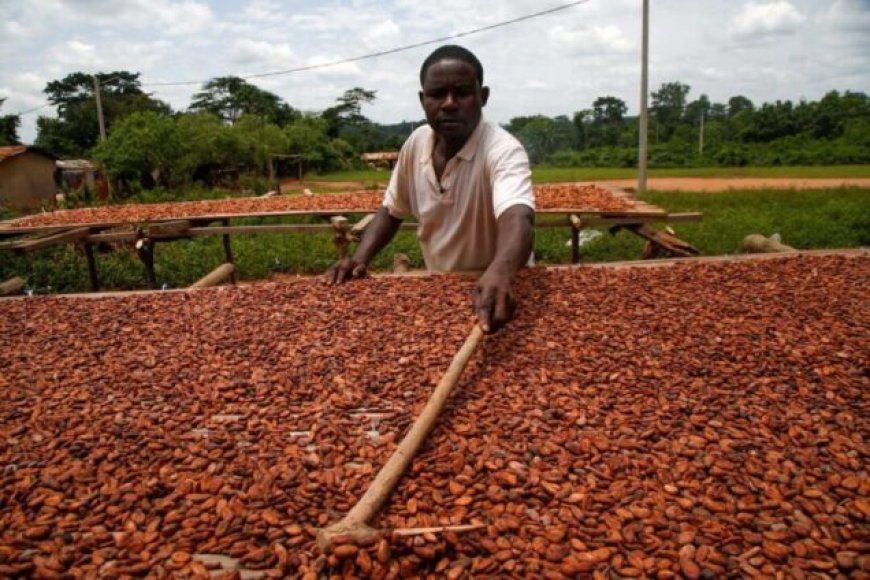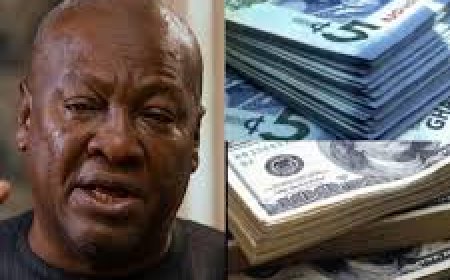No syndicated loan needed for 2025/26 cocoa season – COCOBOD
Ghana’s COCOBOD will not seek a syndicated loan for the 2025/26 cocoa season, a historic departure from decades of financial reliance. Officials cite strong forex performance, domestic funding reforms, and cocoa price increases as driving factors.

Accra, Ghana – The Ghana Cocoa Board (COCOBOD) has confirmed that it will not be seeking a syndicated loan to finance cocoa purchases for the 2025/26 season — a significant departure from its long-standing financial model that relied heavily on international syndicated loans to pre-finance cocoa operations.
Traditionally, COCOBOD secured syndicated loans from a consortium of international banks, often exceeding $1 billion annually, to fund the purchase of cocoa beans from local farmers at the start of each crop season. However, speaking at a press briefing on Monday, Chief Executive Officer Joseph Boahen Aidoo revealed that the Board has “reviewed its financing strategy” due to favorable cocoa prices, improved forex inflows, and effective domestic financial instruments.
“We are proud to announce that for the upcoming 2025/26 cocoa season, COCOBOD will not contract any syndicated loan,” Aidoo stated. “This decision reflects the confidence we have in our domestic capacity and the reforms we have undertaken over the past few years.”
Why This Matters
This marks the first time in over 30 years that Ghana will not rely on external syndicated loans to fund cocoa purchases. Analysts believe this move signals increasing financial resilience and efficiency within COCOBOD’s operations. It also reduces Ghana’s exposure to foreign exchange risks and external debt.
The shift comes amid global cocoa price surges, driven by supply deficits in major cocoa-producing countries including Ghana and Côte d’Ivoire. In 2025, cocoa prices hit record highs on the international market, boosting Ghana’s cocoa export revenue and allowing COCOBOD to meet its domestic financing needs.
Improved Domestic Financing Framework
According to COCOBOD’s Finance Director, the Board has developed a more robust local financing structure, including the issuance of cocoa bills and collaboration with local banks. This has increased liquidity in the domestic market and reduced borrowing costs.
“The use of local financial markets not only keeps the value within our economy but also supports the development of Ghana’s capital market,” the Finance Director added.
Stakeholder Reactions
Industry stakeholders, including cocoa farmer cooperatives and financial analysts, have praised the decision as a progressive step toward self-reliance. However, some warn that sustained success will depend on maintaining high cocoa output levels, addressing smuggling, and managing input costs.
Looking Ahead
While this move reflects confidence and financial strength, COCOBOD emphasizes that it will continue to monitor global market dynamics and remain open to flexible financing strategies should the need arise in future seasons.
This decision could set a precedent not just for COCOBOD but for other state institutions managing strategic commodities in Africa.
What's Your Reaction?





















































































